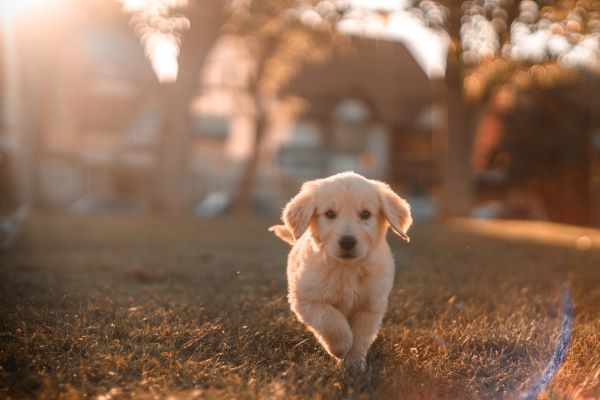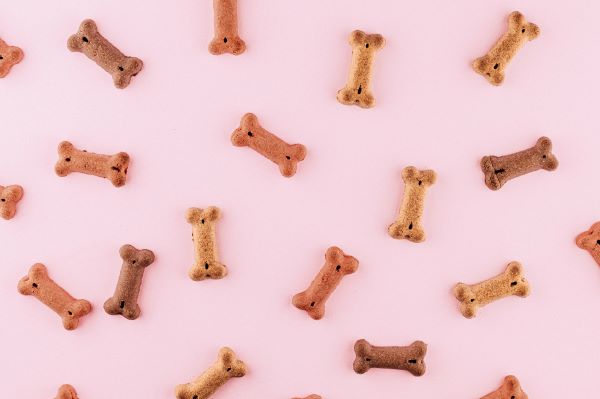How to Teach Your Puppy Good Manners and Mental Fitness
February 27. 2022 0 Comments
- Posted in:
- Animals
We all want our beloved dogs to be healthy both physically and mentally. During the first few months of your puppy's life, you will have a great opportunity to provide it with the necessary conditions for mental growth.
What is mental development?
If we talk about dogs, then its meaning can be understood as including such components as intellectual abilities, curiosity, explorative behavior, creativity, emotional reactions (such as fear or aggression), etc. The main thing that should help your pet during this period - is proper upbringing.
In this article, we will talk about how to teach your puppy good manners.
The necessity of the first month

The meaning of life for any dog consists in a harmonious developmentand a healthy lifestyle. The ideal way is to provide your pet with conditions so that it can develop its abilities, but also have time for restand relaxation. Active physical exercises should be combined with calm mental workouts of various types, which help your furry friend relax after hectic movement. If both types of activity are equally distributed (and such distribution is necessary not only in the framework of daily training), then you will get a balanced dog who won't tire quickly during training sessions.
Besides, when you manage to combine activities that require increased attention and intellectual efforts with periods of rest, then your dog will be even more focused and attentive during training. During this period (in most cases, up to the age of 1 month), the puppy is trying to form its basic personality traits - dominance or submissiveness, communicativeness, sociability with humans and other pets, etc.
The first weeks are also important for developing proper social skills between puppies themselves. With regard to their relationships with people, they should learn mutual trust and respect for each other.
The feeding planis also important. You should nevergive a dog a rich diet. Most likely, your puppy will be fed with natural dry food, which contains all the necessary nutrients for growth and development. If this is not provided - feed it with meat and vegetables cooked in small portions. In no case can you feed your pet with sweetsor dairy products as they cause digestive problems and provoke its constant thirst.
As far as physical activity is concerned, it must be moderate from day one till the end of the training period. Save yourself from those who say that you have to run at least an hour with a puppy per day - that's nonsense! One-month-old puppies just cannot handle a lot of exercise.
If there were cases of death among puppies during training, then they were solely attributed to over-physical activity without appropriate breaks in between.
Training processes in the first month
All this relates to mental workouts. Your puppy must have time for rest and sleep - so it's better not to take your pet with you when you go somewhere or stay awake till late at night playing.
What can use for your pet? - It is very simple: get it accustomed to "training" on a daily basis (in other words, get it used to commands). A good way of teaching your furry friend basic commands is the process called "imprinting."
The definition of imprinting is simple: gradually introducing new actions through repetitions of the same process. To put it simply, if your furry friend is hungry and you begin to feed him following the command "Sit!", then at one point, he will simply obey your command without any hesitation. And that's what you need.
The first month of life is the most optimalfor training, so use it as much as you can. The effectiveness of this process depends on how old your pet actually is - but even more on its innate abilities (heredity). So if 8-week olds are easier to train than 14-week olds, it doesn't mean they are less intelligent. Both age groups require the same amount of diligenceand patienceon your part - but older puppies have bigger energy reserves, which allows them to fool you.
Don't forget that you should never use physical force with your pet!
During the month of life, it is recommended that you regularly hold your puppy under its belly, so he has to raise his legs off the ground. Training forces the animal to tone certain muscles and help it develop dexterity.
Don't forget about increasing attention during training sessions - there are no ideal dogs who can pay attention for an unlimited period. You must regularly brief your dog about upcoming events (even if these are small tasks). In any case, don't miss a chance to praise him for his achievements - even if he simply held an unnatural pose. Praise is as good as a treat for a dog!
Take special care of your pet's food

Puppies have specific requirements when it comes to nutrition. So, don't feedyour pet with human food! It's better to forget about milk, milk products, and meat in the first few weeks of its life. You can consider giving him fishor chicken bones once a week - but it is not recommended to give young dogs any kind of bone that is hard enough for chewing.
Your pet will grow fast enough without dairy products. And most importantly - never allow your dog to chew on anything that could hurt him (such as shoes, sticks, etc.) It should always be remembered that all kinds of garbage are harmful to puppies because they require very soft wet dog food which doesn't put unnecessary strain on their digestive system. Do you remember what we said before regarding good physical proportions? It's all the same here, too.
You should also take care of how you serve your puppy's food. You can use a small bowl or plate with low edges - it will be easier for him to meet his nutritional amount requirements this way. As soon as your pet is done eating, remove everything from its place so that he won't have an opportunity to "steal" some extra bites.
Don't forget about walking!
Just like grown-up dogs, puppies need daily walks in order to stay healthy and happy - however, at first they need them even more than adults do. At the age of one month old, pets don't need more than 10-15 minutes of walking per day - but if you are consistent and do this every day, your pet will walk by itself and you won't even need to train it (well, it's not that easy).
There are many options for puppies who lack activity - but they all come down to one thing: they are not so effective. You should know that you should not play with your puppy for morethan 20 minutes a day because it will make him tired and this might lead to negative health consequences.
The first time you put a leash on your pet, you must be patient and never pull on the leash! If you do this, your furry friend may develop aggression problems later on in its life.
You should also go somewherewhere there aren't any other dogs or distractions (such as cats, running cars) - otherwise, the training process will take much longer. In addition, never leave your dog unattended outside its den as long as it is small and vulnerable. This is to ensure its safety and physical health.
Make sure to get a good night's sleep
Just like people, puppies need their sleep in order to function properly. During the first month of life, they usually sleepfor 16-18 hours a day - more than any other stage of their life. This is why it's so important for you to create a comfortableand safe place for them to rest (a small den, preferably). Puppy beds can be bought at most pet stores.
Don't forget that your pet needs plentyof fresh water, too! You should changeits water bowl at least once a day. If you live in a hot climate, increase the number of water changes to twice a day.
Make sure to visit your vet regularly!
Puppies should go to the vet for a check-up at least once a month. This is an important part of their health care and will help you detect any potential health problems. Early diagnosis and treatment can save your pet's life!
Like children, puppies need vaccinations in order to stay healthy. There are many different types of vaccines, and your veterinarian will be able to tell you which ones your pet needs. Make sure to get all of your puppy's shots on time - otherwise, he may become ill.
Puppy vaccinations are very important and should not be skipped!
Remember that it's not enough for your pet to only walk on the leash - you should also train it to behave properly at home, without constantly pulling on the leash. If you don't want this behavior (and you definitely won't) then put a muzzle on your dog when taking him out of his den. You will need some patience because most puppies see muzzles as something unusual and often unpleasant which they will attempt to take off or avoid wearing at all costs... But if your puppy manages to get rid of this "evil" thing, quickly replace it with an ordinary collar (it will make sure he calms down).
